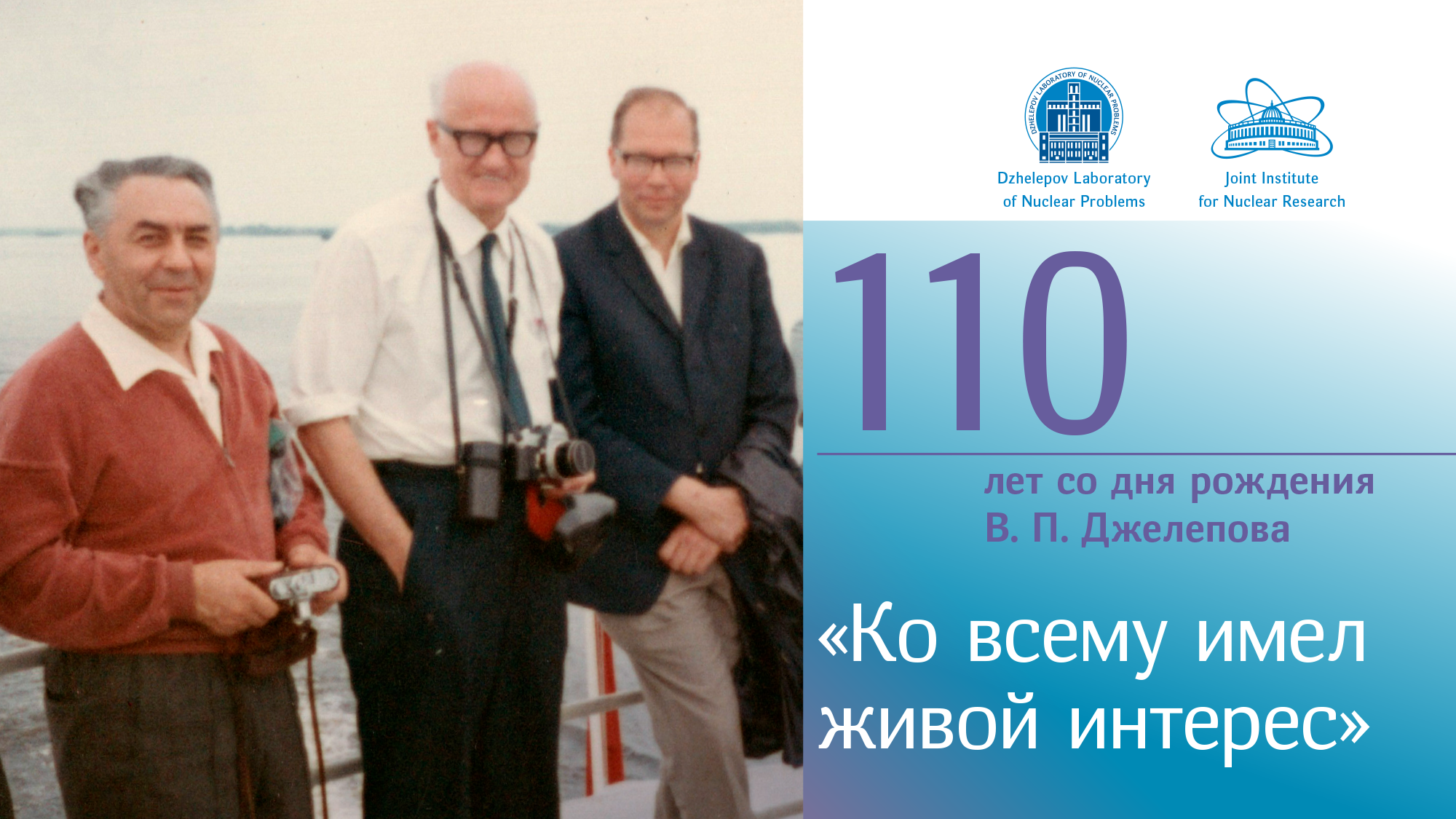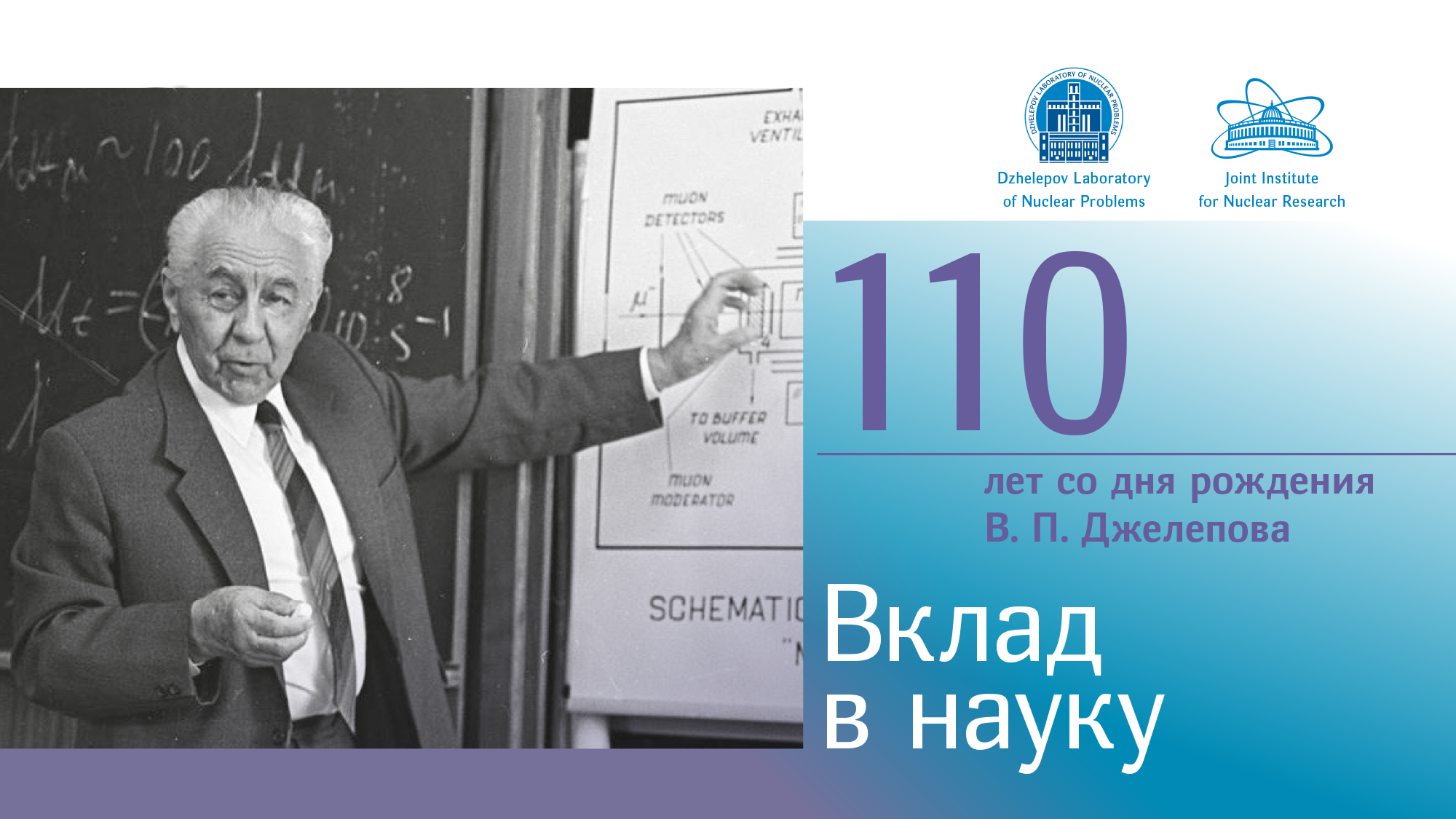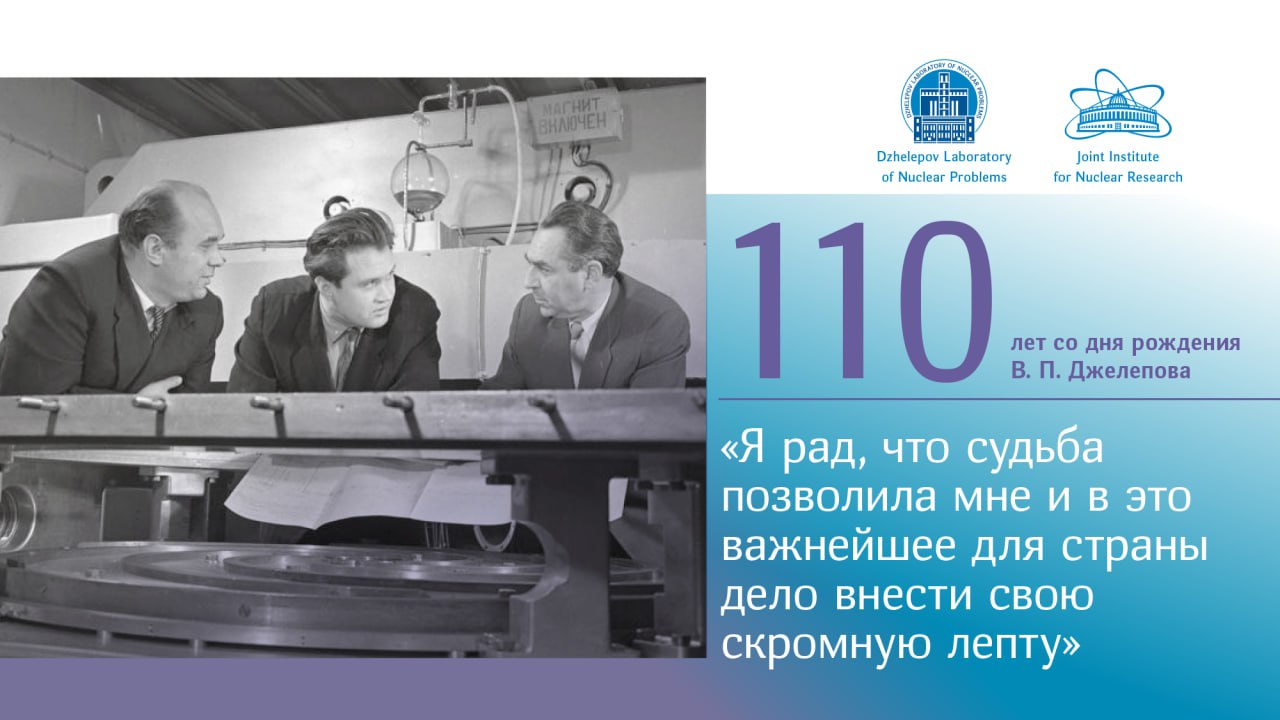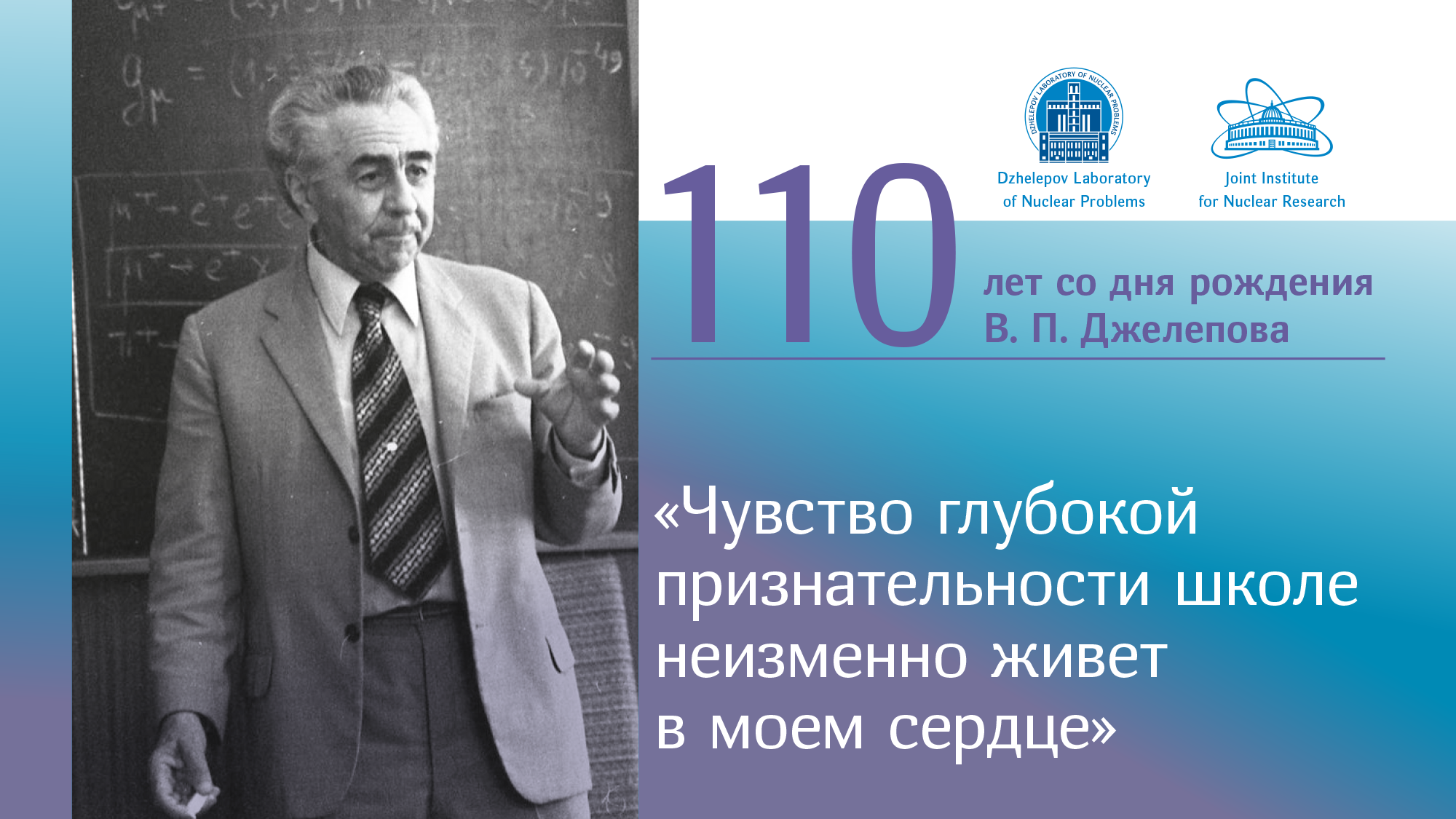Director’s Philosophy
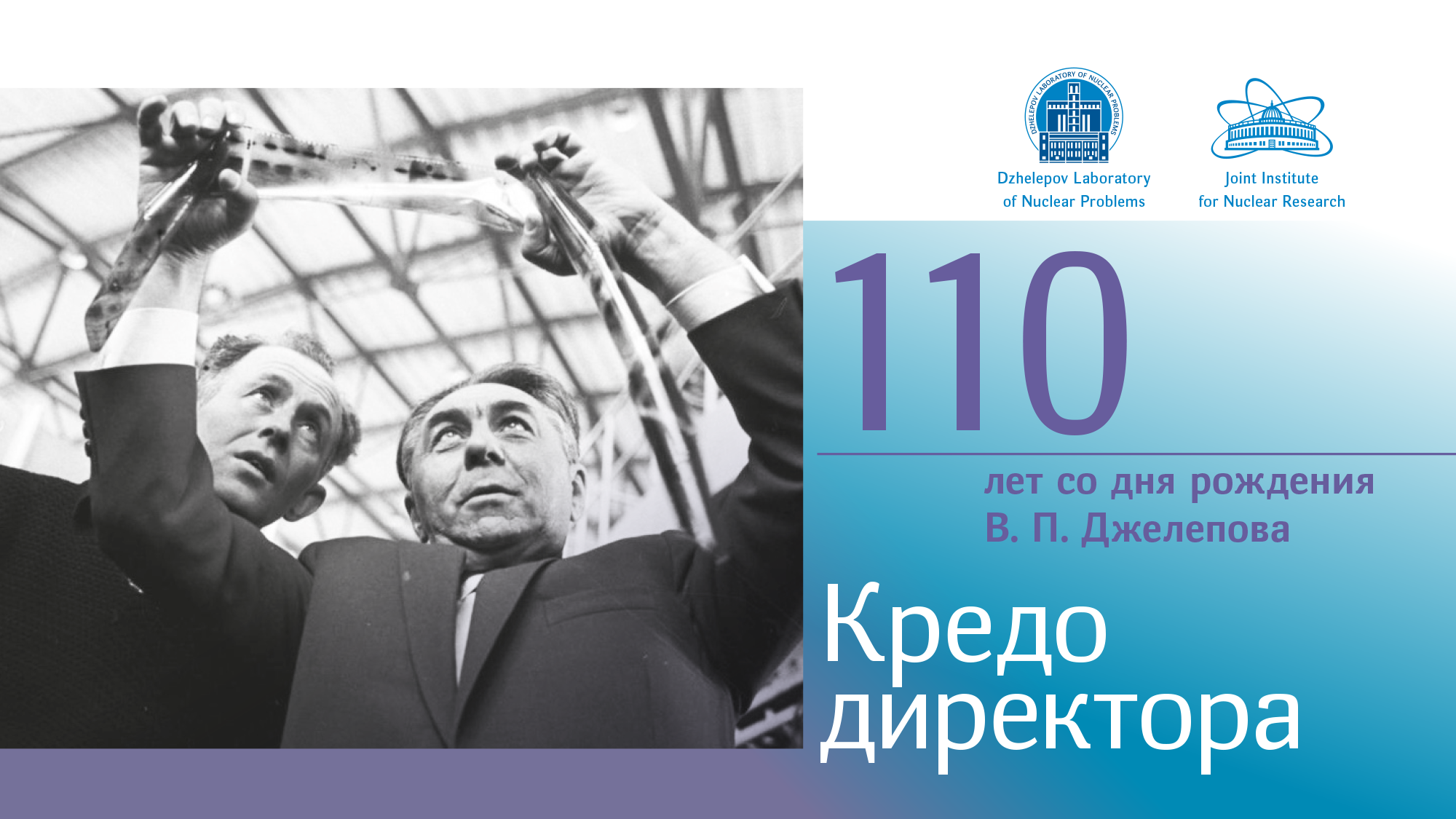
"Without a team, one cannot succeed in creating anything, building anything, discovering anything or thoroughly investigating anything. One should have a good design office, good workshops, wonderful experts able to embody in metal things invented by researchers. One should have skilled craftsmen who will make exquisitely detailed things with their magical hands. If there is nothing of the sort, there is no laboratory. No one, whatever talented and smart, will be able to implement the desired. The team like above is constantly getting richer from inside in the young specialists who grow skilled before our eyes, who come with their fascinating ideas. And it is important to help them to implement these ideas.”
Venedikt Petrovich was a leader of this very kind. The memories of his colleagues and staff members are heartfelt and admiring. Quoting some of them…
“He knew almost everybody at the laboratory. Knowing that I need to go for some reason to Moscow, he invited me to come with him. And during the whole two-hour trip, he asked me about project activities and assembling work and delved into every detail.” (V. I. Smirnov, head of the LNP Electrotechnological Department in 1985−2007.)
“I always saw that he was interested in what was going on around him, in the results about which he always was sincerely happy. He was good-hearted. And always helped with everything he could.” (Academician L. I. Ponomarev.)
“The first Dzhelepov’s feature was being a physicist. The second was being a great science administrator. And the third was his caring about integration of Soviet scientists into the international scientific community.
Dzhelepov respected people a lot, respected labour a lot, highly valued those who selflessly worked hard. Here, at LNP, lights would burn till ten at night.
He was a strong man. He liked this work. He knew what was where, what should be patched up, repaired, painted. He was a real master.” (Yu. A. Budagov, Dr. Sci. (Phys.−Math.).)
“One of his constant responsibilities was the Dissertation Council of the Laboratory whose regular chairperson he was. Council’s expertise, faultless consciousness and accuracy obtained a wide recognition not only in our country.
There were no little things for Venedikt Petrovich in what concerned presentation of the scientific results of the laboratory. He always reminded his staff that scientific results should not only be obtained but also explained to the scientific community. He cannot stand any laxity, blurriness in scientific papers, “Why does he lists everything he measured? Who needs it if nothing follows from it!” was he indignant over it. He entrusted the preparation of annual reports to nobody, studied a lot of data obtained at the laboratory, talked to leading scientists and achieved with them an accurate, exact and clear presentation of results.” (I. G. Pokrovskaya, she was a secretary of V. P. Dzhelepov for many years.)
In 1956, Venedikt Petrovich was appointed the Director of the Laboratory. In 1959, along with the staff team, he developed a cyclotron with a spiral variation of the magnetic field. In 1980−1985, on his initiative and under his guidance, a new basic facility, a high-current phasotron at 680 MeV with a spatial variation of the magnetic field based on the magnetic conductor of the synchrocyclotron, was developed at JINR. On his initiative, radiobiological and radiogenetic studies were started, resulting in the determination of tolerance doses of high-energy particles irradiation for the staff working at accelerators and cosmonauts.
In 1967, the research on application of high-velocity proton beams to cancer treatment was first started on the proposal of V. P. Dzhelepov. Later, a Medical-Technical Complex using beams of particles of different types – protons, negative pi-mesons and high-energy neutrons − was developed and constructed at the JINR phasotron.
For over thirty years, V. P. Dzhelepov served as the Director of the Laboratory of Nuclear Problems. It was during that time that the organizational structure of the laboratory was formed, the main lines of research were established, traditions of staff interrelations and attitude towards the reliability and significance of the scientific data of the laboratory took shape. In 1999, the Laboratory of Nuclear Problems of JINR was named after its first director.


